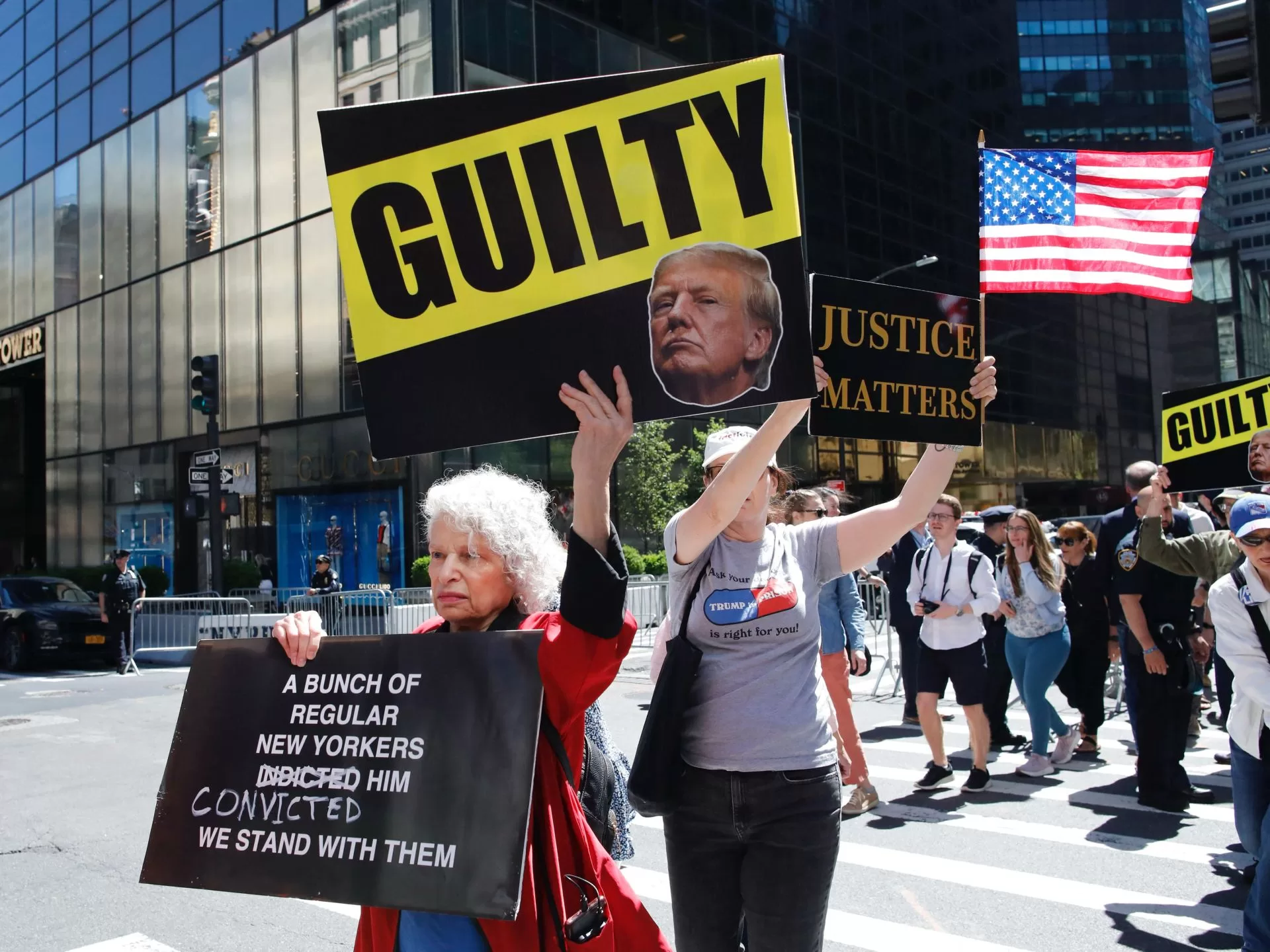Trump became the first former US president convicted of felony charges and was originally set to be sentenced next week.
The decision on Tuesday follows a ruling by the US Supreme Court that ordered broad criminal immunity for presidents in their official acts.
Trump’s legal team had cited the top court’s decision in a letter to Judge Juan Merchan requesting the delay in the sentencing, which was originally scheduled on July 11.
The lawyers representing Trump, the presumptive Republican presidential candidate, told Merchan they needed time to build their case that Trump’s conviction on 34 felony charges of falsifying business documents to cover up hush money payments made to an adult actress should be overturned in light of the Supreme Court’s ruling.
Before Merchan’s decision, prosecutors with the Manhattan district attorney’s office said Trump’s argument was “without merit” but agreed to delay the sentencing.
Merchan said the sentencing would be delayed until at least September 18, less than two months before the November 8 elections.
Prosecutors had argued that Trump falsified business records to cover up his former lawyer Michael Cohen’s $130,000 payment to Stormy Daniels in exchange for her silence on an alleged 2006 sexual encounter with Trump.
They directly connected the payments to a wider scheme to influence the 2016 presidential election.
In their letter to Merchan, Trump’s lawyers argued that during the trial, prosecutors had presented evidence involving Trump’s official acts as president, including social media posts he made and conversations he had while in the White House.
That evidence should have been protected under presidential immunity, the lawyers said, per the Supreme Court’s Monday ruling.
The ruling from the majority of six justices on the nine-member bench said presidents have “absolute immunity” from criminal liability for any acts within their “core constitutional powers”. Evidence related to those official acts also may not be presented at a trial, the majority opinion said.
However, the ruling, which was assailed by the court’s three liberal justices, said presidents could still be prosecuted for acts outside those powers. The exact delineations remain unclear.
In her dissent, Justice Sonia Sotomayor warned the decision opened the door to “nightmare scenarios”, including possible immunity for assassinating a political rival.
“In every use of official power, the president is now a king above the law,” she wrote.
Political implications
The Supreme Court ruling bodes well for Trump, who faces three additional criminal trials.
It is expected to be the most bedeviling to the legal argument at the heart of a federal case related to Trump’s efforts to overturn the 2020 presidential election results after his loss to President Joe Biden.
It could also have implications for a state trial in Georgia related to efforts to pressure officials to change the 2020 vote count as well as a second federal trial related to Trump allegedly hiding and hoarding classified White House documents at his Florida estate.
The New York trial, however, was the only trial expected to finish before the election. While the initial guilty verdict did not show a major shift in support for Trump, analysts have argued that a severe sentence could turn off some would-be Trump voters.
Merchan’s decision comes five days after Biden delivered a dismal performance in the first presidential debate against Trump, which has sent the Democrat’s campaign into damage control while bringing concerns over the 81-year-old’s age to the fore.
On Tuesday, a Reuters/Ipsos poll was released showing one in three Democrats think Biden should end his re-election bid after the debate performance. Still, the poll found no prominent elected Democrat would perform any better than Biden in a hypothetical matchup against Trump.
On Wednesday, Biden was reportedly set to meet with Democratic governors in an effort to allay their concerns.
White House spokesperson Karine Jean-Pierre also said Biden would give his first post-debate interview to ABC News on Friday and would hold a news conference during a NATO conference next week.
She reiterated that Biden has no intention of dropping out of the race.
